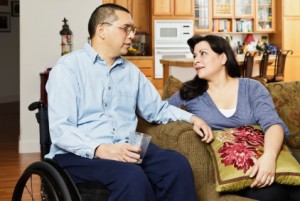
A traumatic brain injury can have a serious impact on your well-being, which is why it’s important to be able to recognize the signs of a TBI.
Mild TBI
A mild TBI is the most common type of a brain injury. This is akin to a light concussion – considering that this type of TBI is not severe, it can sometimes go unnoticed for far too long. Some common symptoms include a headache, fatigue of any kind, memory loss, dizziness, loss of balance, or some type of emotional disturbance that is abnormal for you.
Severe TBI
When, on the other hand, it comes to a severe TBI, this is a bit different. Moderate to severe characteristics of a traumatic brain injury is more serious and can vary more widely. Symptoms can include (but are not limited to): serious speech and language issues, cognitive deficits, different physical or emotional changes, differences in social behavior and interaction, and any type of sensory difficulties.
If you notice a change in your physical, mental, or emotional state after an injury, it’s important to take care of this right away. See a doctor at your earliest convenience to ensure that you get the help you need and deserve. TBIs should be treated right away!
Join the TryMunity Community – We’re Here for You!
Do you have further questions about the most common signs of a TBI? Don’t hesitate to contact TryMunity. Here at TryMunity, we provide a vast, comprehensive web of resources for just that! We also have several support systems for those afflicted with a traumatic brain injury, or who know of someone who is. Please feel free to contact us with any questions you may have! Join the TryMunity community today, and take advantage of all that we offer. We’re always happy to speak with you, and offer our assistance.


 Traumatic brain injuries are a serious health problem in the population at large – each year, nearly 1.7 million people are estimated to be affected by brain injuries (whether traumatic or not). And yet, unfortunately, there’s still a dearth of collective knowledge, and even conversation, surrounding this issue. People simply don’t talk about it, and the media is even less inclined to focus on the true extent of brain injuries.
Traumatic brain injuries are a serious health problem in the population at large – each year, nearly 1.7 million people are estimated to be affected by brain injuries (whether traumatic or not). And yet, unfortunately, there’s still a dearth of collective knowledge, and even conversation, surrounding this issue. People simply don’t talk about it, and the media is even less inclined to focus on the true extent of brain injuries. After experiencing a traumatic brain injury, the last thing you want to do is have to figure out all the terminology that goes along with it — particularly when it comes to rehab specialists. Here, we’ve outline what exactly a rehabilitation specialist does:
After experiencing a traumatic brain injury, the last thing you want to do is have to figure out all the terminology that goes along with it — particularly when it comes to rehab specialists. Here, we’ve outline what exactly a rehabilitation specialist does: Traumatic brain injuries are a serious health concern. When such a large percentage of the population is affected with something so life-altering, it’s time to
Traumatic brain injuries are a serious health concern. When such a large percentage of the population is affected with something so life-altering, it’s time to 
 Are you or a loved one
Are you or a loved one 
